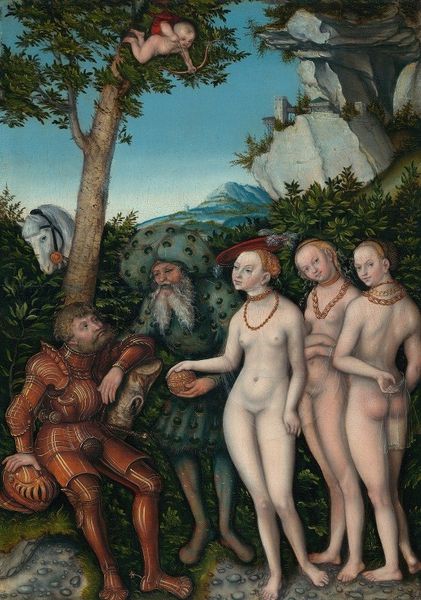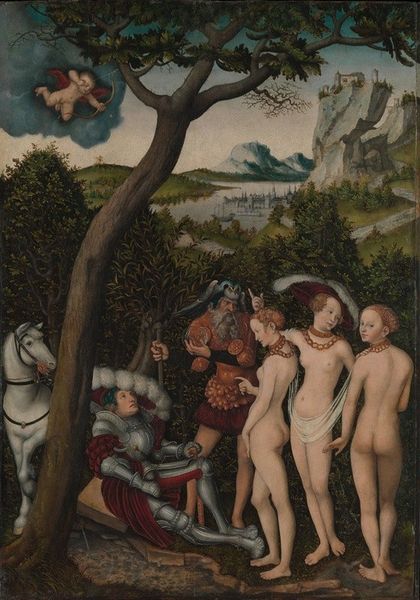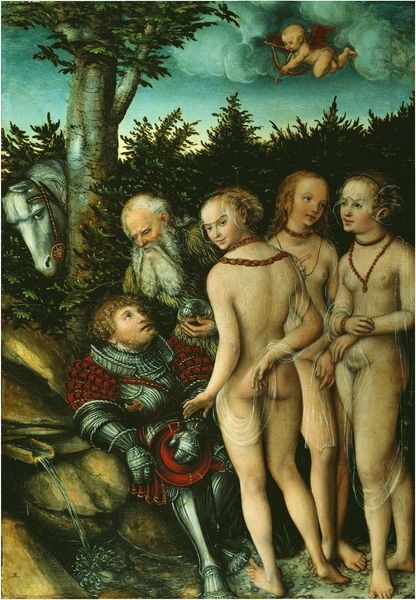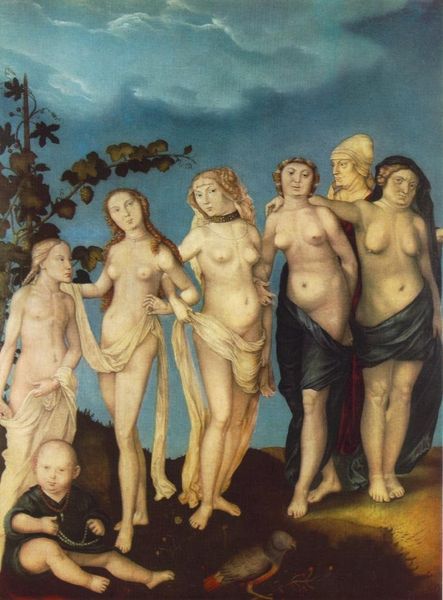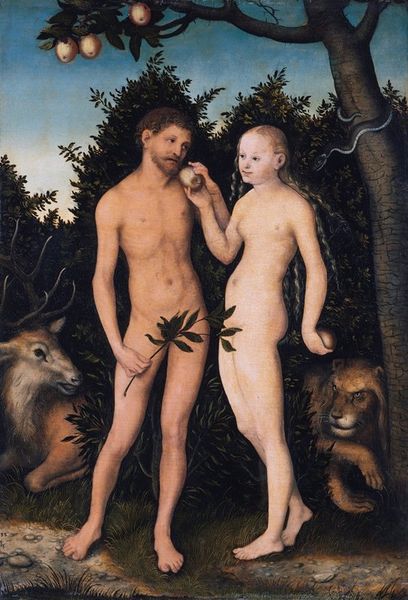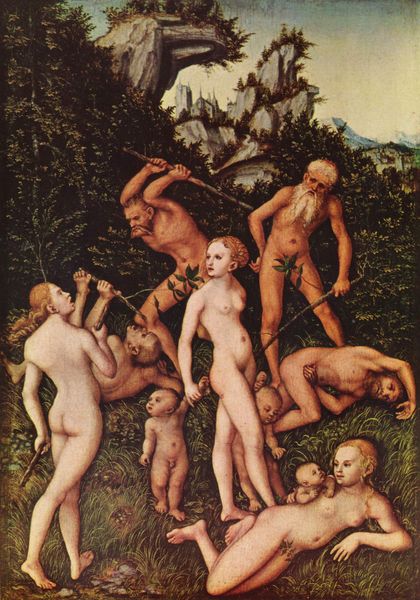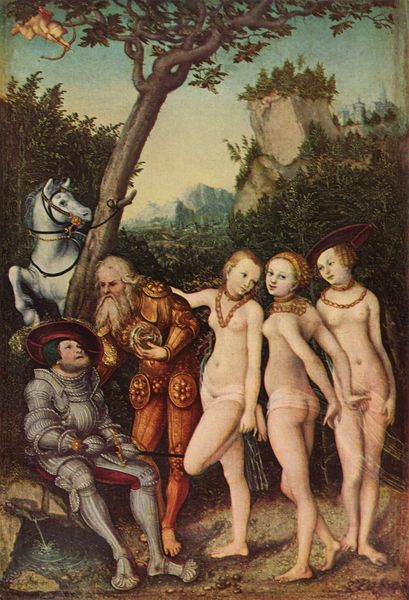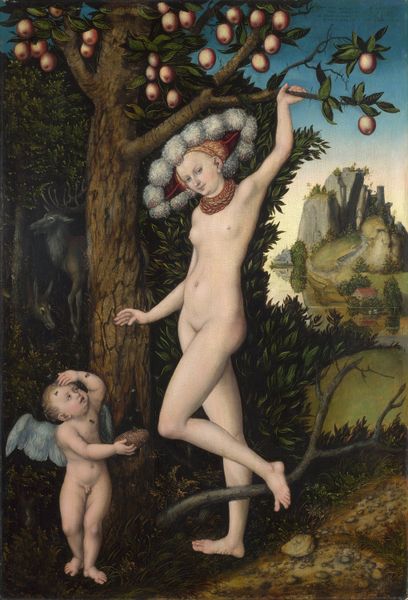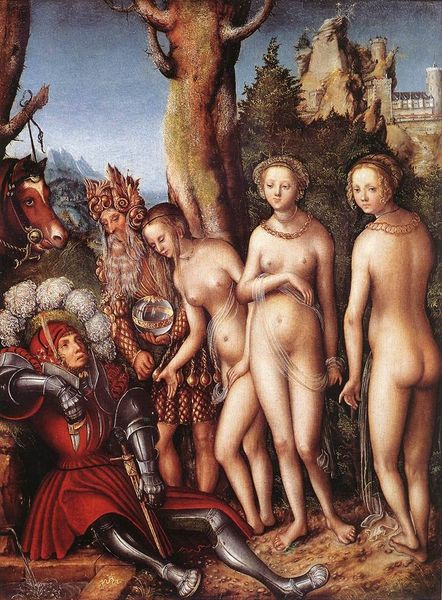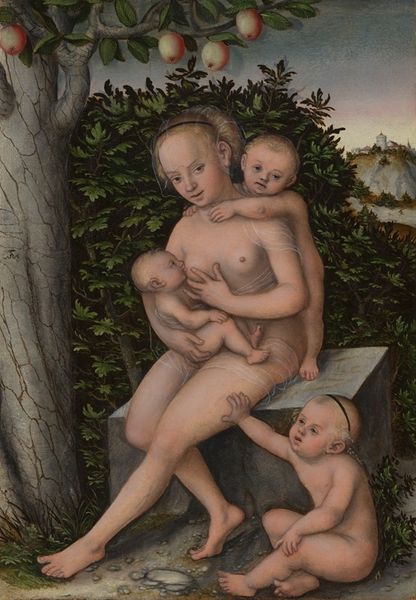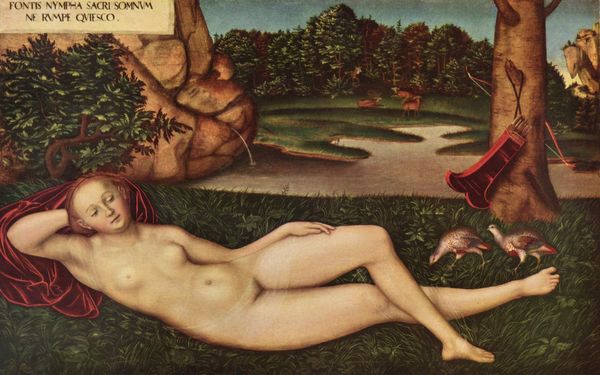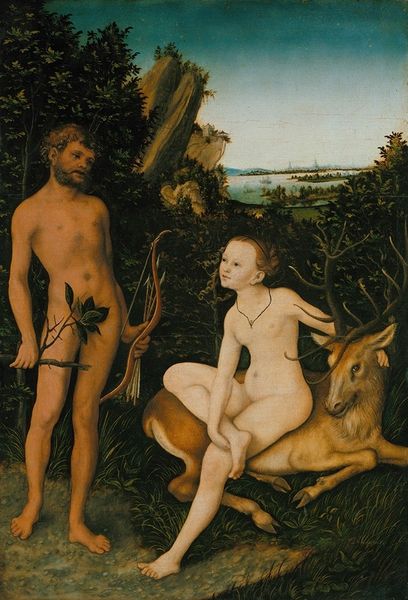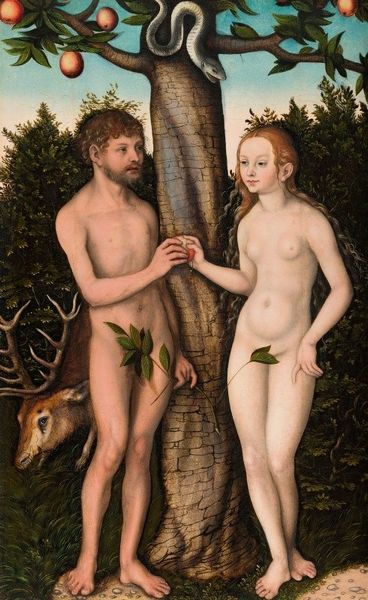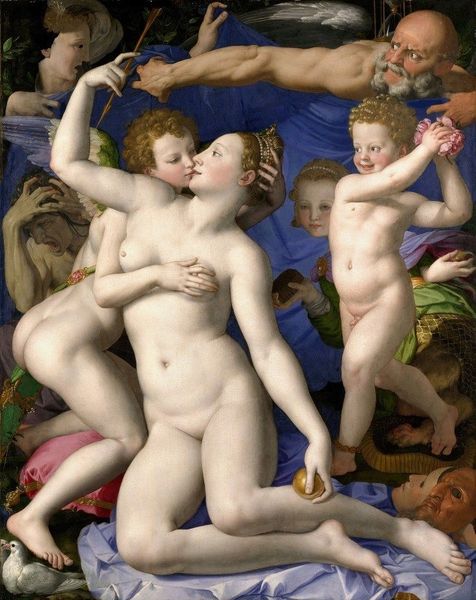
painting, oil-paint
#
allegory
#
painting
#
oil-paint
#
landscape
#
figuration
#
11_renaissance
#
oil painting
#
mythology
#
history-painting
#
northern-renaissance
#
nude
Copyright: Public Domain: Artvee
Editor: Lucas Cranach the Elder's "The Judgement of Paris," created in 1527, presents a somewhat strange, unsettling interpretation of the classical myth. It is all in the rendering, particularly of the figures. How do you interpret this work and its cultural significance? Curator: This piece tells us a lot about the context in which it was made. Consider the Northern Renaissance. Cranach, working in Wittenberg, was close to Martin Luther. What might this subject – the nude goddesses and the vain judgment – mean in a world grappling with religious reform and anxieties about earthly temptations? Think about how the female nude functions: less as an idealized form, as in Italian Renaissance art, and more as a moralizing figure. Editor: So, you're suggesting the painting isn't just about the story of Paris but also reflects anxieties of the time, almost a commentary on earthly temptations? Curator: Exactly. And look closely at the landscape, so different from idealized classical settings. It’s a distinctly Central European landscape. Cranach roots this classical myth in his own place and time, forcing a reading filtered through contemporary social concerns. He reclaims classical imagery and makes it his own, but what sociopolitical statement could the artist be making? What happens to this when museums then acquire and display them? Editor: That makes me rethink my initial reaction. The strangeness of the figures might not be a lack of skill, but a deliberate choice to emphasize those anxieties. It really shifts how you view the piece. Curator: Precisely. The power of art lies not just in what is depicted, but also how it interacts with and reflects its surrounding culture, doesn't it? Even in its contemporary display. Editor: Definitely gives you a richer understanding, thinking about both the historical context and the artistic choices. Thanks!
Comments
No comments
Be the first to comment and join the conversation on the ultimate creative platform.
